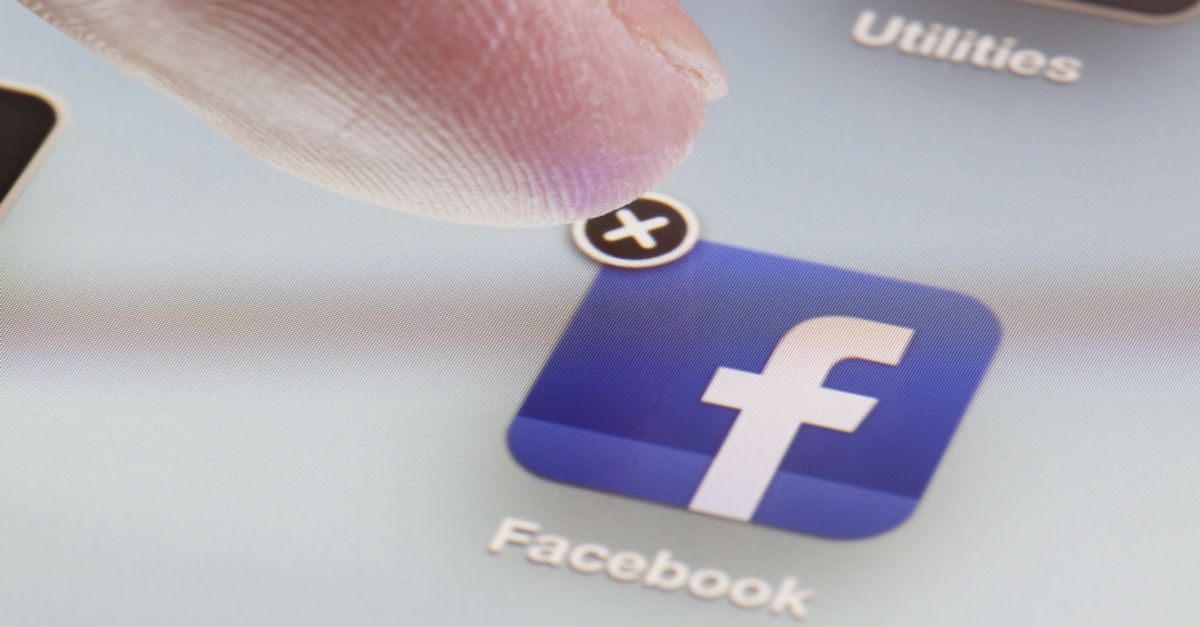#DeleteFacebook? #GoodLuck!
A study published on Monday found that when it comes to protecting our privacy, it isn’t quite that simple. In fact, we don’t have to actually have a social media profile in order to be known, thanks to the fact that all our predictable friends and colleagues can fill in the blanks.
A study from researchers at the University of Vermont and the University of Adelaide found that access to as few as eight of our contacts is enough to enable predictive or machine learning technologies to achieve up to 95% accuracy in guessing what a person will post.
From an abstract of the study, titled “Information flow reveals prediction limits in online social activity” and published in the journal Nature Human Behaviour on Monday:
Information is so strongly embedded in a social network that, in principle, one can profile an individual from their available social ties even when the individual forgoes the platform completely.
Jim Bagrow, a mathematician at the University of Vermont who led the research, said in a statement that he and his team used statistical models to analyze data from more than 30 million publicly available Twitter posts from 13,905 accounts. Using that data, they used machine learning to accurately predict what a person would post based on what their contacts have posted.
What’s true for Twitter goes for Facebook, too, the researchers say: Even if you’ve never posted to either platform, it just takes between eight and nine of your friends to build a profile of your likes, interests and personality on social media.
A statement from Bagrow:
You alone don’t control your privacy on social media platforms. Your friends have a say too.
Friends like these
This is just the latest bullet in the list of how poorly our privacy fares online, which has included Facebook shoveling our data into outfits such as Cambridge Analytica. That data debacle was also centered around our social media friends… and how they’re useful when it comes to dragging our privacy through the mud.
Tens of millions of users’ data were grabbed not because those users had necessarily played a Facebook personality test called thisisyourdigitallife, but because a friend did. The app just reached past the personality test users themselves and grabbed their contacts’ data, as well.
The past year has also brought increasing insight into Facebook’s shadow profiles: profiles filled in with data collected from non-members that include, among other things, email addresses, names, telephone numbers, addresses and work information… a practice that European courts have told Facebook to knock off.
In April, when Facebook CEO Mark Zuckerberg was getting grilled by lawmakers on Capitol Hill, he told them that his company only collected data on non-users for “security purposes.” Facebook explained that it also included people’s contact lists when they use Facebook’s mobile app, which the platform uses to suggest friend recommendations.
Twitter hadn’t responded to media requests for a comment as of Thursday afternoon. For its part, in response to the study, a Facebook spokeswoman told news outlets that even if the company collects data on non-users, it doesn’t build profiles on them. From its statement:
If you aren’t a Facebook user, we can’t identify you based on this information, or use it to learn who you are.
A statement from co-author Lewis Mitchell, a senior lecturer in applied mathematics at the University of Adelaide:
There’s no place to hide in a social network.

Me
God, I wish Facebook would hurry up and die.
Debra Lynn Akers
So what is this about … And to have a email with debralynnakers1 who made that account ..so then as I read this on my life and accounts and with fb you are going to delete me by my life and you gain all my friends naned phone numbers and emails ..so I lose my life and you gain everything of me and my kids for your stuoid ugly expierments that your social networks have to do with … It’s sad our kids are missing and you gain thier life .. and the target on our lives comes from your social network that you all made so protected and all based on lies .. you stuoid people ..
Bryan
This is simply a natural evolution of phenomena that have been around for millennia.
A thousand years ago, it was slower going for criminals to intercept information. They had to steal messages from private couriers (provided they could read) or kidnap someone in the know (for those who couldn’t). Trickery is not a new concept, and without drivers’ licenses and passports it was likely easier to convince someone of a pseudonym–how difficult could it really have been to forge the royal seal?
A well-meaning uncle might blurt to the wrong people that you’re enjoying a lovely vacation to Disney World, letting thieves know they could not only help themselves to your Xbox but also crash in your place for a couple nights(/months). Or simply meandering through a market eavesdropping, no doubt is still a viable means of gaining random ingress.
Fifteen years ago, it was email. I could spend hours of self-inflicted inconvenience in a vain attempt to prevent my email address from being poached by spammers, but all it takes is my mom forwarding one promise that Bill Gates would pay her for testing his new email program. What’s BCC: they ask? No matter.
Now it’s Spacebook and Twitter sticking their third-party fingers into every conceivable nook and ginnel. A solitary security-stumbling user can drag everyone down with them. Bon voyage!
Misery has always loved company–even if it’s unwittingly–why should that change simply because we all shuffle a few more ones and zeroes these days?